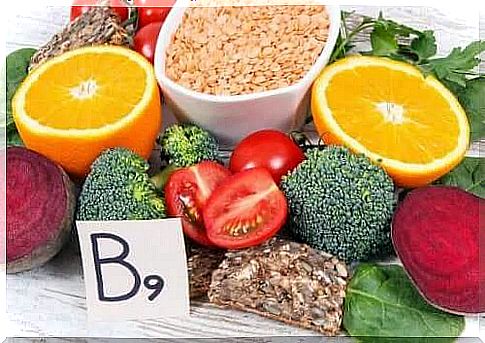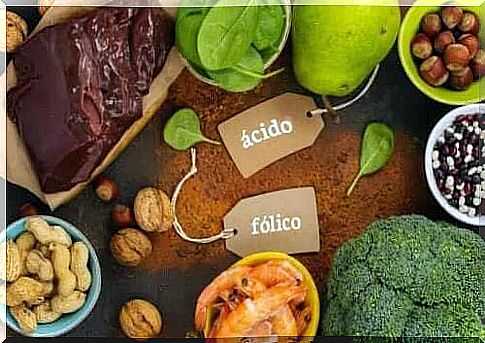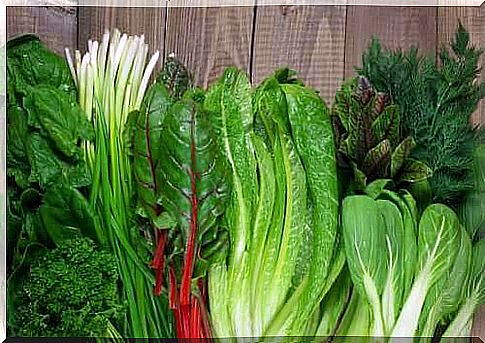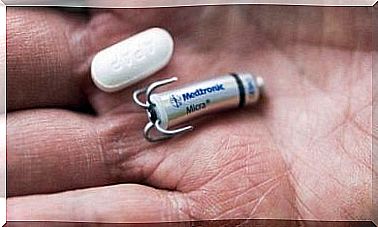Ordinary Foods High In Folic Acid

Most people’s knowledge about folic acid is that it is something that doctors recommend to pregnant women. But the truth is, it’s a nutrient that should be part of everyone’s daily diet. Therefore, it is a good idea to get to know some of the foods that are high in folic acid.
Although it is often available in dietary supplements and industrial products, there are also many options for a natural intake. That is why we have chosen to make an overview of foods with a high content of this vitamin, so you can include it in your favorite dishes.
What is folic acid?

First of all, it is important to know what this nutrient is made up of. It is a vitamin – more precisely vitamin B9 – that plays a role in the proliferation of hemoglobin and cells. In addition, it has an active role in bone marrow and is therefore essential in the fight against anemia.
Ways to get it are through green vegetables, yeast, lentils, nuts and whole grains. However, it is often wasted during certain forms of cooking. Therefore, it can be difficult to get the amount that the body needs. It is an important nutrient for pregnant women as it prevents abnormalities in the placenta, anemia and malformation of the fetus.
It is recommended that a minimum of 100 micrograms of folic acid be ingested in men and 180 micrograms in women. Women trying to conceive should take double for a few months.
The role of folic acid
A healthy intake of folic acid can:
- Helping the health of cells. Building DNA, multiplying complex proteins, whole wounds, keeping cells healthy and ensuring proper development.
- Assist fetal development. Especially the spine, heart, brain and nervous system.
- Improve female fertility. Studies have shown that women who take folic acid for three months before conception increase the chance of getting pregnant.
- Facilitate the production of red blood cells. This prevents anemia and other diseases related to the number of red blood cells.
- Increase heart health. It fights many heart diseases, helps against poor circulation and prevents heart attacks.
- Prevent depression. People with depression have a low content of folic acid. A healthy intake helps with mood.
- Delay early aging. Also certain neurodegenerative diseases if the recommended daily intake is followed.
Foods high in folic acid
Green vegetables

The primary vegetable is spinach, which provides 63% of the recommended daily intake of folic acid. Leaf beds are in second place, while third place is occupied by lettuce.
Lenses
Lentils and beans are also particularly rich in this vitamin. Pregnant women should eat these foods weekly. 1.25 dl lenses provide 50% of the folic acid needed during pregnancy. They also fight anemia due to the high content of iron.
Asparagus
This vegetable has many health benefits, especially due to folic acid. 1.25 dl covers more than 60% of the daily intake. It is also an excellent diuretic. Experts recommend it for problems with urination or urethritis.
Broccoli is known for its high folic acid content

1.25 dl of this vegetable provides a lot of folic acid, but also calcium, fiber and vitamin C. You should definitely include it in your diet plan.
Citrus fruits
It is especially oranges, but also papaya and strawberries. Although these foods do not contain much folic acid, it is a good idea to have them in your diet, especially breakfast.
Avocado has a high content of folic acid
It is rich in fiber, fatty acids and folic acid. 1.25 dl of this fruit provides about 30% of the daily intake.
Do you get enough folic acid through your diet? If you are not sure, you can try some of the foods we have mentioned here. If you are pregnant or trying to become pregnant, talk to your doctor about recommendations for folic acid.









